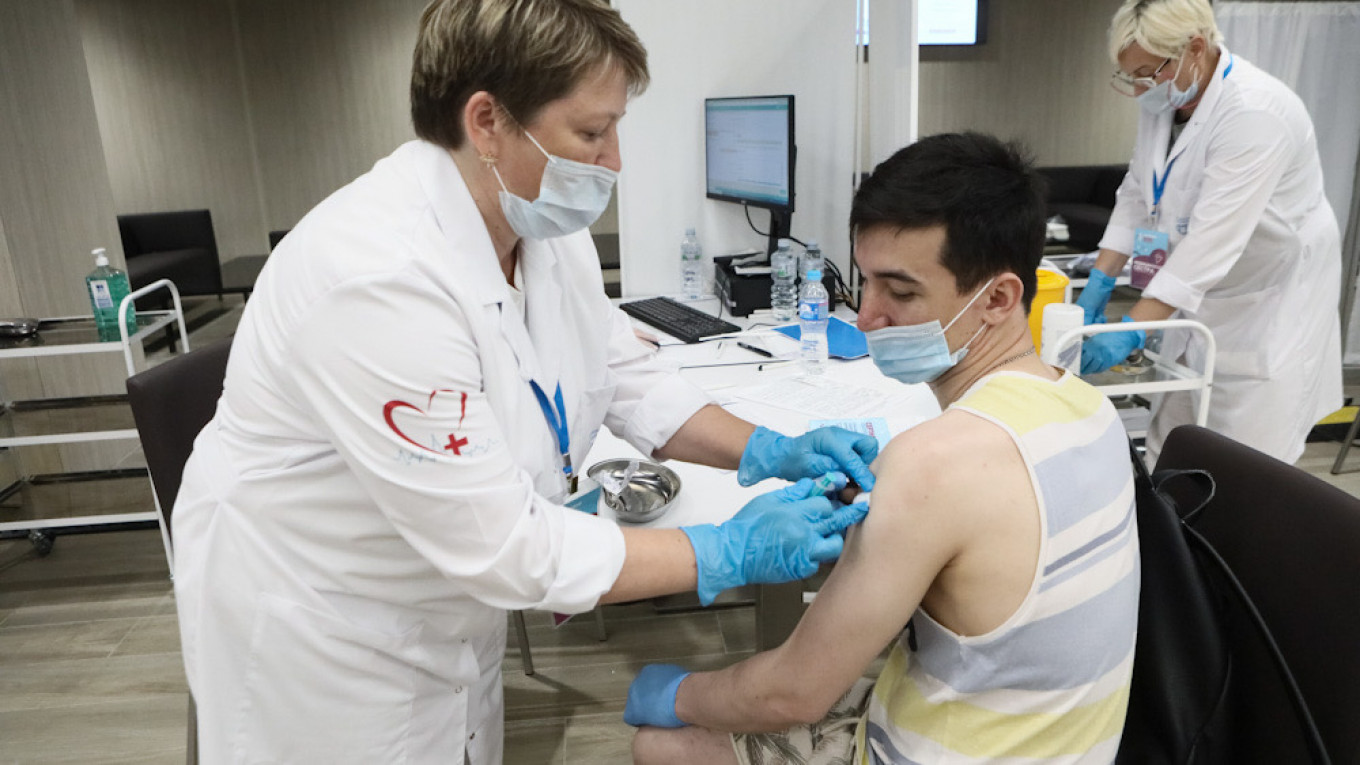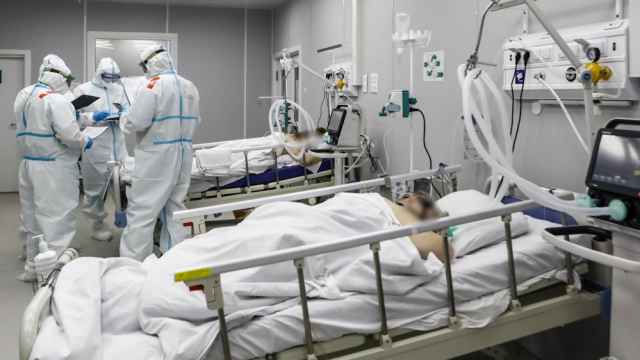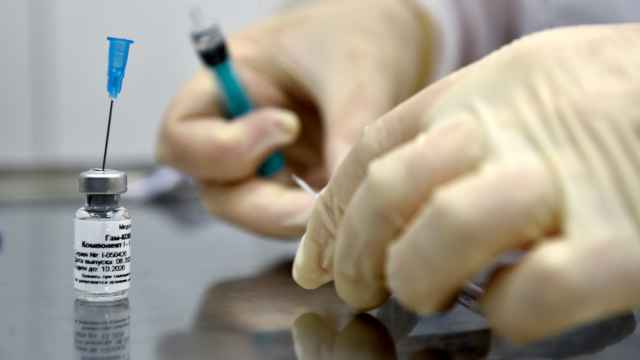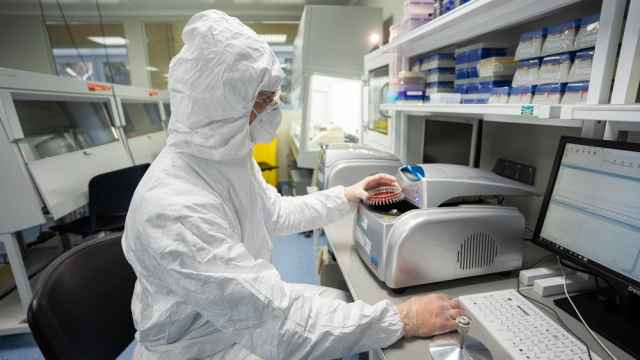Russia’s Sputnik V vaccine produces a weaker immune response against aggressive new mutations of the coronavirus such as the Delta variant, the jabs’ developers announced Monday in a new peer-reviewed study.
Sputnik V’s developers used blood samples from people who had completed a course of vaccination with the jab to investigate the so-called virus-neutralizing activity of antibodies when presented with new strains of the coronavirus.
The scientists found significant reductions in Sputnik V’s virus-neutralizing effect against three variants of concern identified by the World Health Organization: the Delta variant, first identified in India, the Beta variant from South Africa and the Gamma variant traced to Brazil.
Against Delta, there was a 3.1-fold reduction in virus-neutralizing activity, while 2.8-fold and 2.5-fold decreases were registered against the Beta and Gamma variants respectively.
The research was shared Monday in the online medical journal Vaccines, published by the Multidisciplinary Digital Publishing Institute.
The results support an earlier U.S. study — criticized by the Russian Direct Investment Fund (RDIF) at the time — which found Sputnik V had reduced effectiveness against coronavirus mutations.
The results also follow similar lab studies which have shown other coronavirus vaccines, including the Pfizer and AstraZeneca shots, produce a reduced antibody response to new variants of the virus among blood samples taken from vaccinated individuals.
Sputnik V’s developers at the state-run Gamaleya Center said the reductions in its immune response were “lower” than what has been reported for other vaccines in different studies, but noted a “direct comparative study” would be necessary to make a final conclusion.
Reductions in virus-neutralizing activity are not directly correlated to a vaccine’s overall effectiveness at preventing infection, hospitalization or death, the study’s authors said. A separate study, for instance, showed the adenovirus-based AstraZeneca vaccine had a ninefold reduction in virus-neutralizing activity in lab studies, but a reduction in the vaccine’s actual efficacy was no more than 11%.
Data from Britain on the real-world effectiveness of both the AstraZeneca and Pfizer vaccines against the highly transmissible Delta variant suggests the vaccines are less effective at preventing infection when compared to the original coronavirus strain, though still highly effective against severe infections and deaths.
The Gamaleya Center study found no significant decline in Sputnik V’s virus-neutralizing activity against the Alpha variant first discovered in the U.K., or against new so-called Moscow variants of the coronavirus, which have not been named variants of concern (VOC) by the World Health Organization.
Alexander Gintsburg, director of the Gamaleya Center and Sputnik V’s chief developer, said the study “demonstrated strong results of Sputnik V against new variants of Covid-19.”
He added that the results were further proof of the jab’s “vaccine cocktail” approach, in reference to Sputnik V’s two-dose regimen of different viral vector components, compared to other two-dose vaccines in which the jabs are a repeat.
Russia is currently grappling with a Delta-fueled third wave of the pandemic, which has seen its leaders scramble to accelerate a slow-starting vaccination campaign that has seen only one in five Russians receive even a first dose of a coronavirus vaccine so far.
A Message from The Moscow Times:
Dear readers,
We are facing unprecedented challenges. Russia's Prosecutor General's Office has designated The Moscow Times as an "undesirable" organization, criminalizing our work and putting our staff at risk of prosecution. This follows our earlier unjust labeling as a "foreign agent."
These actions are direct attempts to silence independent journalism in Russia. The authorities claim our work "discredits the decisions of the Russian leadership." We see things differently: we strive to provide accurate, unbiased reporting on Russia.
We, the journalists of The Moscow Times, refuse to be silenced. But to continue our work, we need your help.
Your support, no matter how small, makes a world of difference. If you can, please support us monthly starting from just $2. It's quick to set up, and every contribution makes a significant impact.
By supporting The Moscow Times, you're defending open, independent journalism in the face of repression. Thank you for standing with us.
Remind me later.







